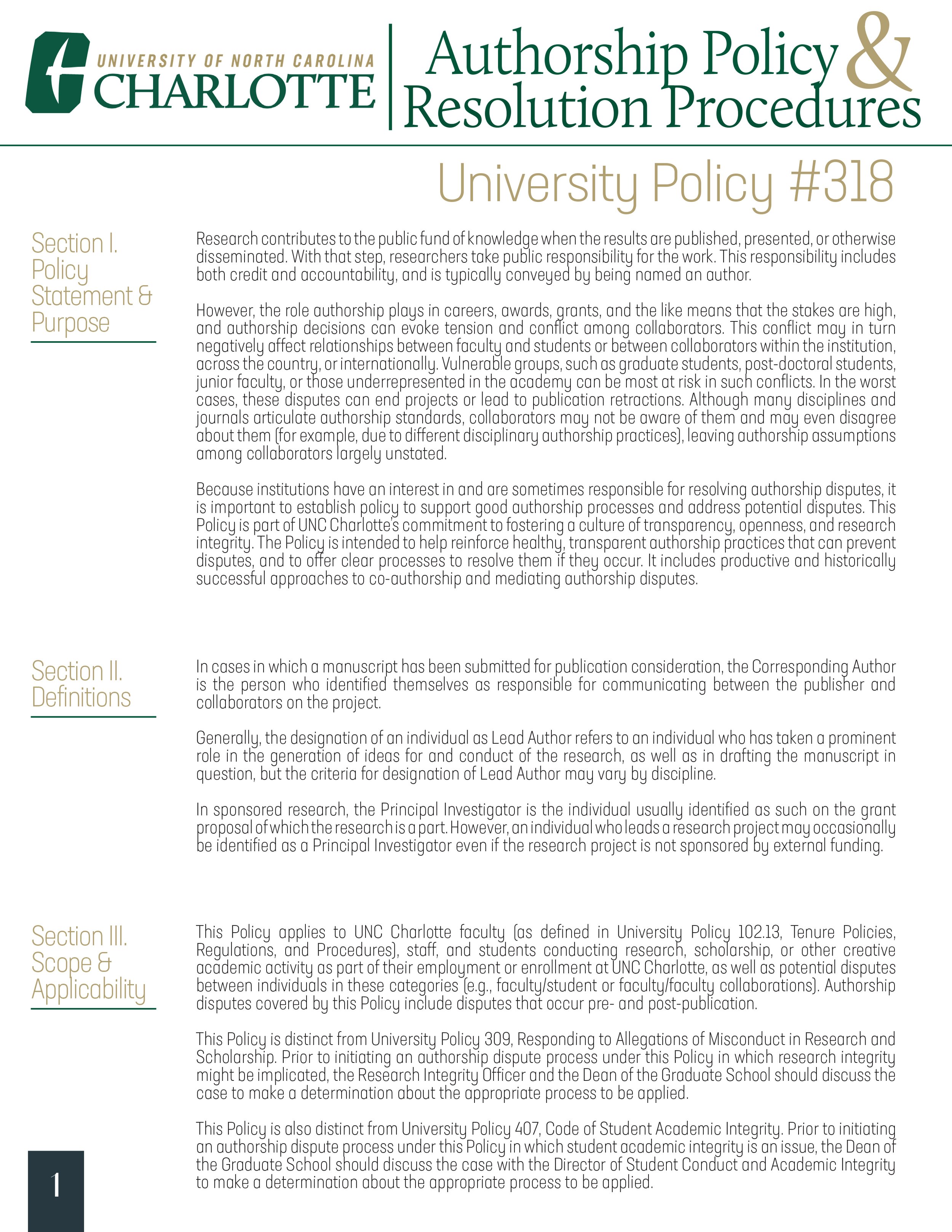About
Authorship Policies
You've been learning about some of the challenges in determining authorship naming and ordering. Authorship is an issue for researchers around the world; as a result, in recent years, scholars have called for the development of additional guidance on authorship, including within institutions.
Some universities have formal authorship policies to protect researchers. As part of their commitment to fostering a culture of research integrity, the University of North Carolina at Charlotte formally adopted an institution-wide in 2021. Their policy recognizes that the University has an important role to play in setting expectations for ethical authorship practices and offering procedures to resolve any disputes that may arise.
Click the button to download an annotated copy of Charlotte’s policy.
Here, we’ve highlighted several key points in Charlotte’s policy that we think you’ll find especially helpful.
-
No single set of authorship standards is established, but a few minimum requirements for authorship are set out.
-
Senior, Lead, or Corresponding authors are assigned the responsibility of leading group discussions.
-
Anyone who has made a substantial contribution to a scholarly product should be named an author, which conveys both credit and responsibility.
-
All authors should approve the final version of a submission.
-
Honorary, ghost, or gift authorship is not acceptable.
-
In student work, the general expectation is that the student will be the first author.
-
Authorship conversations should be held as early as possible in a collaboration and may need to be revisited often.
-
Written authorship agreements are helpful tools for making open and transparent authorship decisions in a collaboration.
-
In Section V, Charlotte’s policy outlines both informal and formal dispute resolution procedures.


